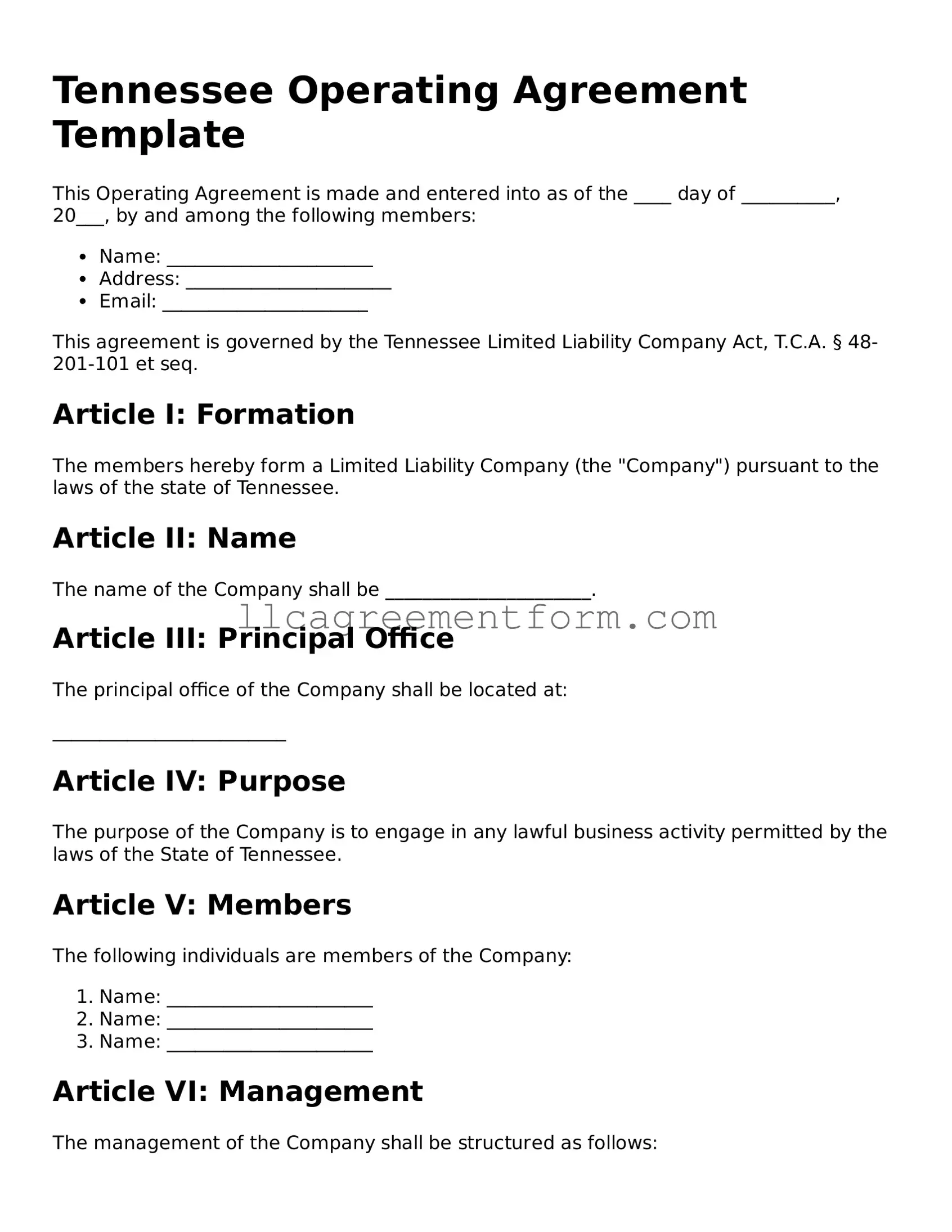Free Operating Agreement Document for Tennessee
The Tennessee Operating Agreement form is a crucial document that outlines the management structure and operating procedures of a limited liability company (LLC) in Tennessee. This form serves as a foundational blueprint, detailing the rights and responsibilities of members, as well as the rules governing the business. Completing this agreement is essential for ensuring clarity and legal compliance in your LLC's operations.
Take the next step in formalizing your business structure by filling out the form below.
Get Operating Agreement Now

Free Operating Agreement Document for Tennessee
Get Operating Agreement Now
Don’t stop halfway through your form
Finish Operating Agreement online with fast editing and easy download.
Get Operating Agreement Now
or
▼ PDF
